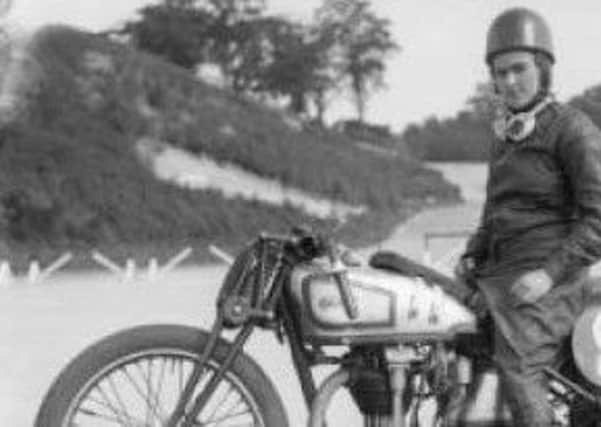Amazing stories from three of Portsmouth's female pioneers


Together, readers are being urged to nominate the incredible women who are working to make a difference in their community.
To nominate a woman, visit amnesty.org.uk/suffragettespirit. All women must have carried out work to help others in their local area within the last 10 years.
Advertisement
Hide AdAdvertisement
Hide AdAll successful nominees will be contacted prior to being placed on the Suffragette Spirit Map of Britain.
Here HOLLY SAYER-GRAY and KASSANDRA UNDERWOOD look at prominent names from Portsmouth’s past.
___
SARAH ROBINSON
Sarah Robinson is recognised as an honorary daughter of Portsmouth for her good work for returning soldiers and seamen from the Crimean war.
Sarah was born in 1834 in Peckham and was an advocate of the Temperance movement.
Advertisement
Hide AdAdvertisement
Hide AdShe believed the link between alcohol and poverty was a clear correlation to the continuation of poverty and, despite coming from a fairly wealthy family, she strived to aid the poor in any way she could.
Inspired by Florence Nightingale and Mary Seacole, her journey led her Portsmouth in 1864.
In the city she witnessed what awaited soldiers and sailors returning from the war, including prostitutes, drink and ‘land sharks’ who would trick the men out of their money.
She decided to help and officially opened the Soldiers’ and Sailors’ Institute in High Street in 1874.
Advertisement
Hide AdAdvertisement
Hide AdBy 1877 there were 220 beds to offer as a result of the demands.
Robinson’s care included, beds, coffee and Bible studies to help, as she saw it, not only the lives of the off-duty men but to help their souls.
Despite her good work, Robinson saw a lot of confrontation from workers the armed forces and got very little funding, paying for funding most of the project herself.
But as described in the Dictionary of National Biographies: ‘Her success was due not only to her loyalty for the reputation of the British Army as a credible institution but to her ability to handle the subject of temperance with discretion and sensitivity.’
FREDA SWAIN
Advertisement
Hide AdAdvertisement
Hide AdBorn in Portsmouth on October 31, 1902, Freda Swain had an affinity for the piano from an early age. Her father sold musical instruments and it is believed her grandfather was a bandmaster in the Royal Marines.
She won both an Ada Lewis Scholarship for piano at the Royal Academy of Music and the Portsmouth-Whitcombe Scholarship for composition at the Royal College of Music.
Freda chose to study at the Royal College of Music where she was taught by Sir Charles Villiers Stanford. She studied with Arthur Alexander, whom she married in 1921. She returned to the college in 1924 as a professor.
She founded the British Music Movement in 1936, to help promote new music from composers and artists.
Advertisement
Hide AdAdvertisement
Hide AdMuch of her work was broadcast on the BBC and, before the start of the Second World War, Freda toured South Africa and Australia with her husband, giving recitals, broadcasting and teaching.
Freda later returned and set up ‘NEMO’ concerts, promoting artists’ music after the Second World War.
Her work includes a one-act Opera ‘Second Chance’ and her love of her native Portsmouth was reflected in her work, one composition being called The Lark on Portsdown.
Portsmouth Guildhall has a business lounge named after her.
BEATRICE ‘TILLY’ SHILLING
Beatrice ‘Tilly’ Shilling OBE PhD MSc CEng is remembered for her contributions to motorsports and the Second World War.
Advertisement
Hide AdAdvertisement
Hide AdBorn on March 8, 1909 in Waterlooville, from a young age Shilling’s intelligence became apparent.
She bought a motorbike at 14 and started tinkering with it, learning the intricacies of its engine.
When she left school she worked with an electrical engineering company and three years later attended the University of Manchester, receiving a degree in electrical engineering and a Master of Science in mechanical engineering.
Shilling worked for RAE and in the Second World War with the RAF. Her biggest achievement was so significant it changed the manufacture of fighter jets, especially the Hawker Hurricane and Supermarine Spitfire.
Advertisement
Hide AdAdvertisement
Hide AdThe original design of fighters meant as the plane dived in battle it would stall. Shilling invented ‘Miss Shilling’s Orifice’, a disc which stopped the flow of fuel through the engine and prevented it from stalling.
Beyond this, she was a motorbike and car racer, known for beating professional, Noel Pope and was awarded the Brooklands Gold Star for lapping the circuit at 107mph.
She was described by a colleague as ‘a flaming pathfinder of women’s lib’.